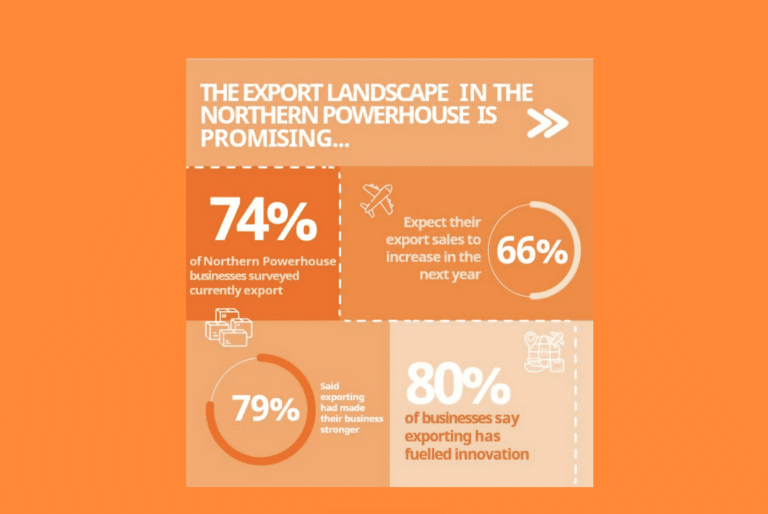Businesses in the Northern Powerhouse are ambitious for international growth and see exporting as key to their success, according to new research.
The latest figures come from global ecommerce giant Alibaba Group’s UK arm, in partnership with the Institute of Export and International Trade.
The study of more than 3,000 businesses across the UK found that 74 per cent of businesses across the Northern Powerhouse area are currently exporting. Two thirds (66 per cent) of business owners in the Northern Powerhouse surveyed expect their export sales to increase in the next 12 months and 77 per cent of businesses in the region said exporting had boosted their revenue.
Manchester and Liverpool were revealed to be top export spots in the region, at 82 per cent and 84 per cent respectively, while 81 per cent of businesses in Sheffield expected export to increase in the next year, coming out as one of the survey’s top cities in the UK for positive export outlook.
Beyond the economic benefits of exporting, the research from Alibaba suggested further positive impacts on Northern Powerhouse-based businesses – 79 per cent said exporting had made their business stronger; 80 per cent said exporting had fuelled innovation within their companies; 79 per cent said they had increased their headcount as a result, and 78 per cent said exporting had relieved the pressure of doing business in the UK.
When it comes to markets, businesses in the Northern Powerhouse are looking close to home, regardless of Brexit. A third (33 per cent) regard the UK’s nearest neighbours in the European Union (EU) as the market which presents the biggest export opportunity. North America (29 per cent) and Asia (25 per cent) were considered to present the biggest future growth opportunities.
Despite the generally positive outlook, many businesses reported challenges that could stand in the way of their export ambitions. The top five biggest export barriers cited were supply chain and logistical issues (22 per cent); “fully occupied by the domestic market” and increased paperwork and red tape ( both 20 per cent), and regulatory barriers and economic uncertainty, both with 19 per cent.
Of the businesses focused on international growth, 68 per cent of those surveyed are currently using online marketplaces to boost their export sales. Over a third (35 per cent) started working with a marketplace during the pandemic, with the pandemic providing a strong impetus for businesses to adopt digital tools.
Roland Palmer, general manager of UK, Nordics & The Netherlands, Alibaba Group, said: “Our research suggests that Northern Powerhouse-based companies are seizing the enormous global export opportunities which exist across the world. The export success of the Northern Powerhouse is clearly driven by the outstanding quality and heritage of its local goods.
“Through international trade, even small businesses have the opportunity to grow, in turn generating more jobs and contributing to economic growth. Once a business begins exporting, they quickly recognize that the advantages outweigh the initial obstacles and they grow in confidence. We’re focused on helping businesses of all sizes on their export journey.”
Marco Forgione, director general of the Institute of Export and International Trade, added: “This research confirms what we have long known – that exporting firms are more sustainable, profitable and resilient – but also sheds light on some of the many challenges that prevent businesses from exporting at all or exporting as much as they could.
“The whole trade community needs to work together to combat and reduce these challenges. IOE&IT is committed to promoting trade as a force for good and doing all we can to help every business start or expand its export activity, regardless of size, sector, or home market.”
The research was conducted by Censuswide, among a sample of 3,011 business owners of companies offering ‘goods’ rather than ‘services’ with two+ employees and a revenue of £1m+ from the UK. The data was collected between 21.02.2023 – 02.03.2023. Censuswide abides by and employs members of the Market Research Society and follows the MRS code of conduct which is based on the ESOMAR principles.










